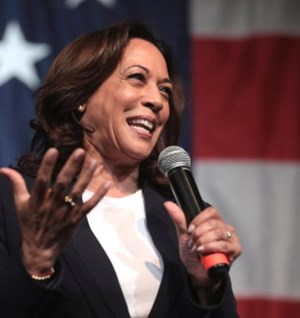Vice President Kamala Harris rules out fracing ban if elected in U.S. presidential race
(Bloomberg) – Vice President Kamala Harris said she wouldn’t halt fracing if elected president, reversing her prior opposition to the technique used to produce most U.S. oil and gas today.
“As vice president, I did not ban fracing,” Harris said in an interview on CNN, her most definitive statement on the issue since becoming the Democratic nominee. “As president, I will not ban fracing.”
The issue looms large for the Harris campaign, especially in Pennsylvania, which is both the second-largest U.S. producer of natural gas and a key swing state. Harris’ shifting stance on the issue has provided a potent attack line for her Republican rival, Donald Trump, in the Keystone State. He has sought to cast her view as part of an extreme approach to energy policy that will cost jobs and raise gasoline prices.
The U.S. can meet its climate goals without imposing any kind of fracing ban, Harris said, pointing to the clean energy incentives in the sweeping Inflation Reduction Act as a way to drive progress on the issue. The 2022 law has triggered a wave of investment in manufacturing and deploying solar panels, batteries and other advanced technology.
“That tells me, from my experience as vice president, we can do it without banning fracing,” Harris said.
Questions have swirled over the candidate’s position on the issue because of a statement she made at a CNN presidential forum during her short-lived 2019 bid for the White House. Asked at the time if she would commit to a ban on fracing her first day in office, Harris said to applause: “There’s no question I’m in favor of banning fracing.”
Harris later moderated her stance, joining with President Joe Biden calling for tougher regulations of the method.
Shortly after Biden dropped out of the presidential election in July and Harris became the presumptive Democratic nominee, a campaign spokesperson said she wouldn’t ban fracing if elected.
Hydraulic fracturing involves pumping water, sand and chemicals underground to free oil and gas from dense rock formations. It is responsible for the vast majority of U.S. oil and gas production today — used at roughly 95% of the country’s wells.
On Thursday, Harris took pains to point out her support for the Inflation Reduction Act, which included provisions meant to encourage more oil and gas leasing on federal lands and waters. The law made the government’s award of wind and solar rights on federal lands contingent on the sale of more oil and gas leases.
“I cast the tie-breaking vote that actually increased leases for fracing as vice president,” she said during the interview Thursday. “So, I’m very clear about where I’m standing.”



